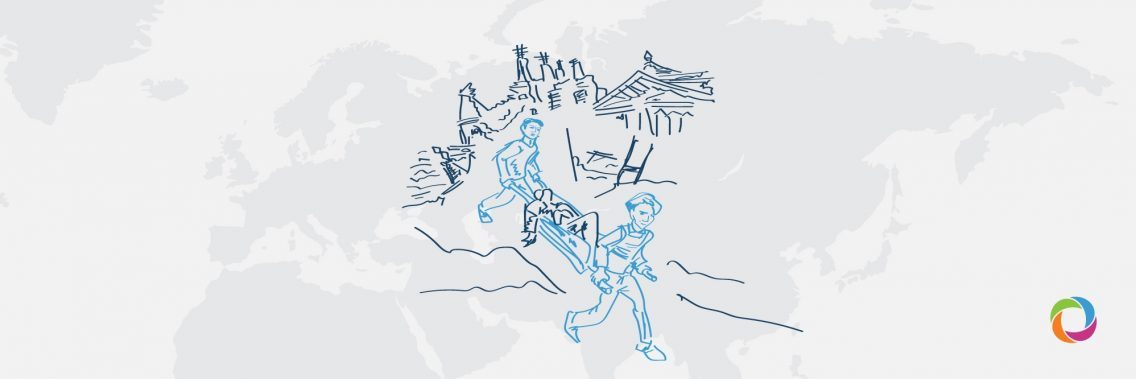Deciding to work in a conflict zone is never an easy choice. Increasingly, aid workers are providing humanitarian and development assistance in some of the most dangerous places on Earth. This involves a series of challenges, sometimes at the risk of their own safety or well-being. In the article below, you will read the story of Manuela Calligaris, a former emergency worker in Syria and Shefa Obaid, a former worker in Syrian refugee camps in Jordan.
How did you become an aid worker in conflict zones?

“As someone who grew up for most of their life in Canada, the thought of working with refugees never occurred to me. However, after graduating with a Psychology degree from the University of Toronto and moving shortly afterward to Jordan, I started seeing refugees everywhere. I applied to work in the Emirati Jordanian Refugee camp in Al Azraq with a child protection Non-Governmental NGO, Terre des Hommes, as a Support Group Facilitator. I then later moved to another NGO, the International Rescue Committee, where I was a specialist and later a manager for women protection and worked on empowerment emergency response projects inside and outside Jordan through cross border work”.

“When you work for NGOs that focus on development cooperation but also intervene in emergencies, you know that the day you will be asked to go to a war zone is just around the corner. After several experiences in the Middle East, I took an assignment in Syria just a few years after the country had slipped into conflict”.
What are the biggest challenges faced by an aid worker in a conflict zone?

“To carry on working on your computer while you hear barrel bombs falling is something you are not prepared for but that you get used to. When random mortars are whistling around your guesthouse kitchen and you have to lie down flat on the floor, there’s nothing pleasant in that but you live through it and get past it”.

“The biggest challenge for someone working in emergency relief work is working in uncontrolled environments where your work is governed by the availability of funding, safety, locations, and moving political factors. You must keep in mind the mission and direction of your donors as well as the physical resources without compromising the objectives and ethical guidelines of your NGO”.
What was the hardest situation you remember from your experience of working in a conflict zone?

“I would say the first time facilitating a support group with Syrian volunteers was the most difficult because it broke my perception of what the human mind and heart can handle as I listened to tragic stories of refugees’ families being displaced and dying in front of them and others having to witness and experience atrocious human rights violations and torture”.
What are some misconceptions about being an emergency worker in Syria?

“Many people join emergency aid work looking for that gratification of being the savior only to realize that it is themselves who have so much to learn from the refugees. Their steadfastness and ability to continue to see and plan for a bright future ahead is not only inspiring but humbling and keeps you optimistic for a more dignified life for all who have experienced war and torture”.
What is your advice for those who want to follow in your footsteps?

“If you are now considering joining an emergency intervention in Syria, do not only think of what might endanger your life. Consider if you are fully prepared to face the challenges ahead and what you don’t have now, you will develop. But also think of Syria for its true hospitality and the kindness of its people, the cultural richness that pervades the country and the enchanting beauty that you will see all around you despite the devastation of buildings”.
Check more than 320 job opportunities in Humanitarian Aid & Emergency here.

